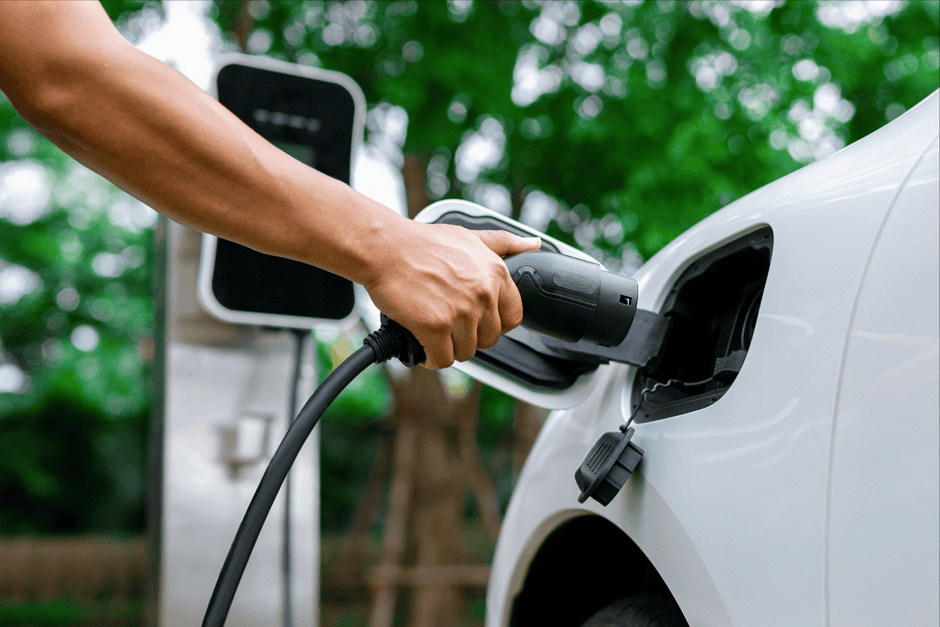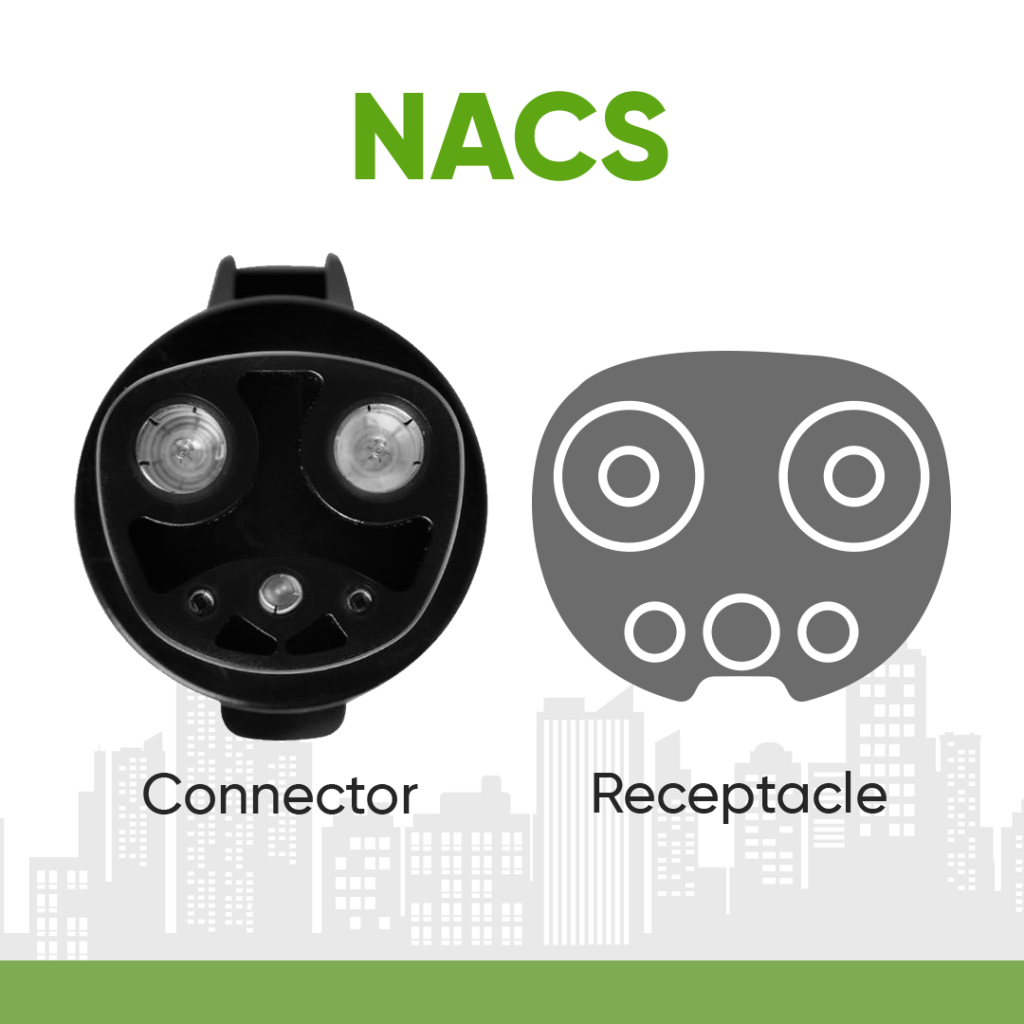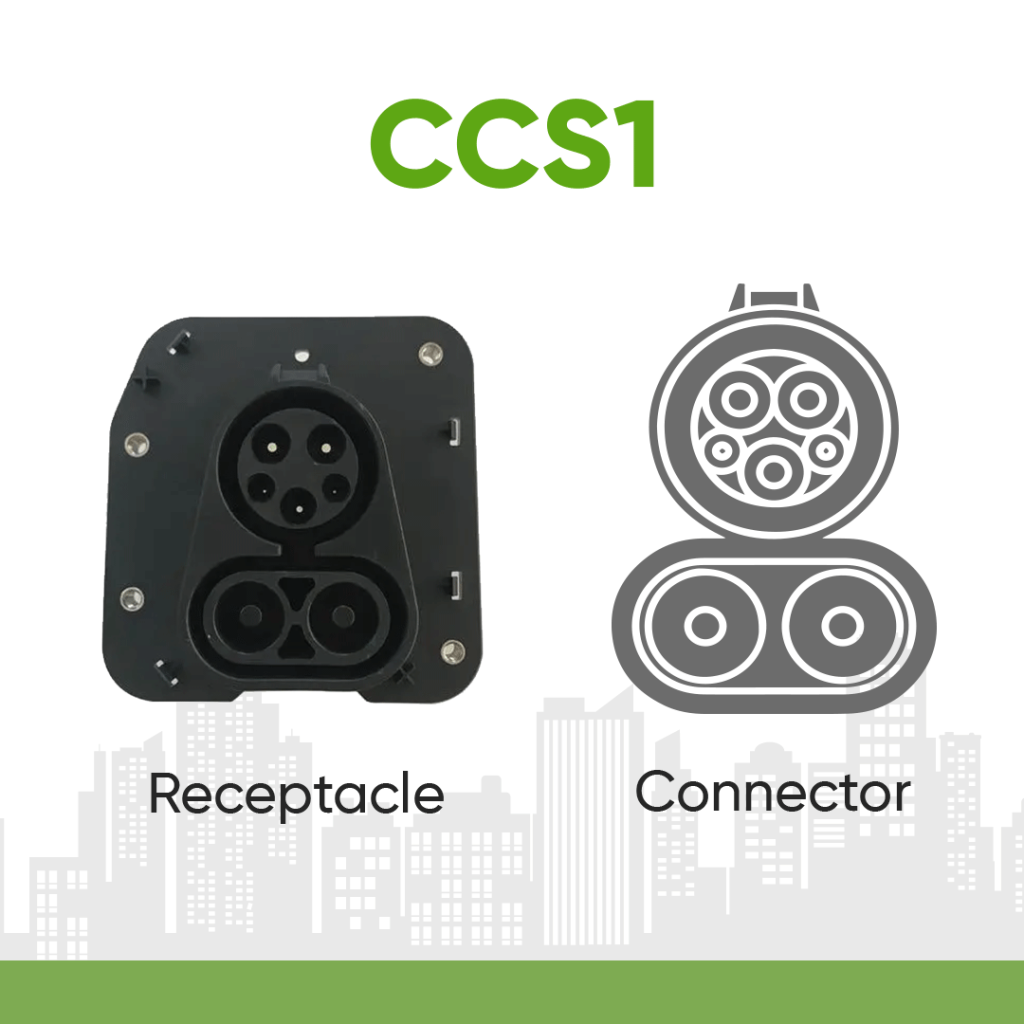Not sure about choosing a charger? Try our revamped Charger Finder!
Try our revamped Charger Finder!
- For Installations
- All our chargers come with a 1 year warranty
- Free Shipping
November 21, 2024
Charging your EV is about much more than Tesla Superchargers or domestic chargers.
Electric vehicle connectors vary depending on the vehicle, and understanding the various connector types will help you shop smartly for chargers and access public charging when needed.
So, what are the most common EV charger connector types in North America?
Utilizing alternating current, AC chargers convert domestic AC power to direct current (DC) through the car’s onboard charger.
With a voltage of either 120v or 240v (sometimes referred to as level 1 or level 2 charging respectively) depending on your home charger.
The main AC EV connector types include:
Also known as SAE J1772, this is the most common connector in North America for fully electric and plug-in hybrid vehicles.
It can be used for both level 1 and level 2 charging with your 240V wall outlet for faster charging.
J1772 chargers have been seen as the default for all non-Teslas on the market – but after Q4 of 2024, most manufacturers will swap to the NACS or Tesla connector.


Also called Tesla connectors thanks to the use of the Tesla brand proprietary plug, the North American Charging Standard (NACS) charger is soon to become the most widely used connector in North America.
This is because, as of 2024, Tesla has allowed other manufacturers to use their charging technology and it has been widely accepted to make EV charging more inclusive.
Read more about this in our blog!
The NACS connector can be used for both level 1 and level 2 charging with your 240V wall outlet for faster charging.
Most people choose to install a 240V wall outlet in their home as it offers a range of benefits, including:
This means relying only on DC charging is risky and can leave you running out of charge while out.
DC fast charging, sometimes called level 3 charging, offers rapid charging capabilities to compatible EVs. DC charging stations can be fitted with the CCS type 1 combo, CHAdeMo, or NACS connectors, depending on the location, brand, etc. Make sure you look at your favorite ev charging app to find the right match for your vehicle.
While this can be incredibly helpful for charging on the go quickly, utilizing superfast charging regularly can be damaging to the EV battery, and it can be challenging to find an available charging station.
For this reason, we recommend level 2 charging and don’t encourage you to just rely on level 3 charging.
William McBride, October 2024. – A common question for homeowners once they have bought their electric vehicle or plug-in hybrid vehicles.
The most important considerations for EV charger installations in Orange County are linked to location, home age, panel condition and the EV charger.
We have sold hundreds of EV chargers in Orange County, starting in 2020. When we were first involved in the industry, the average EV charger would cost around $800. Hardwired EV chargers that are UL certified and incorporate strong app enabled software, are around $600. Plug-in EV chargers are less sophisticated and will generally be around $350. High power 48- or 40-amp level 2 EV chargers will of course be more expensive than lower power EV chargers. Here is a link to our sister company with examples of a hardwired EV charger.
A big predictor of the charger installation costs, especially for larger Orange County homes, is the location of the EV charger in relation to where the car is parked. The longer the distance of the EV charger (the spot where the charger is mounted to the wall), the more expensive the installation will be, this is due to the extra labor, copper and other materials. There will also be more extensive patching and repairs to drywall
The cost increases if the installation requires multiple days of work, involves a new panel or panel upgrades. This can happen when there are no available breaker slots on the electrical panel, which can involve more work to free up a power line
Combining both the SAE J1772 type 1 connector (at the top) and two DC pins (below), you get what’s called the CCS1 connector that allows for superfast charging.
If you charge this way, it can take an EV from empty to 80% in less than an hour.


Previously favored by Japanese carmakers, models such as the Nissan LEAF and Mitsubishi Outlander PHEV all use this connector type.
It can offer first-generation CHAdeMO models around 75 miles of range in 30 minutes, while second-generation models can offer a vastly increased mileage in the same amount of time.
Using NACS connectors, Tesla’s and other compatible models can take advantage of the Supercharger network.
Some Superchargers may have a Magic Dock or CCS 1-compatible adapters moving forward.
To clear up AC or DC charging and the appropriate EV connector types for your new EV, our experienced and friendly team can help.
Our EV selector tool has been designed to help you find the right charger for you, with just a few simple questions.
Alternatively, you can also contact us by emailing [email protected] or open the webchat by pressing the green message icon at the side of your screen and our team will help however they can.
William McBride, October 2024. – A common question for homeowners once they have bought their electric vehicle or plug-in hybrid vehicles.
The most important considerations for EV charger installations in Orange County are linked to location, home age, panel condition and the EV charger.
We have sold hundreds of EV chargers in Orange County, starting in 2020. When we were first involved in the industry, the average EV charger would cost around $800. Hardwired EV chargers that are UL certified and incorporate strong app enabled software, are around $600. Plug-in EV chargers are less sophisticated and will generally be around $350. High power 48- or 40-amp level 2 EV chargers will of course be more expensive than lower power EV chargers. Here is a link to our sister company with examples of a hardwired EV charger.
A big predictor of the charger installation costs, especially for larger Orange County homes, is the location of the EV charger in relation to where the car is parked. The longer the distance of the EV charger (the spot where the charger is mounted to the wall), the more expensive the installation will be, this is due to the extra labor, copper and other materials. There will also be more extensive patching and repairs to drywall
The cost increases if the installation requires multiple days of work, involves a new panel or panel upgrades. This can happen when there are no available breaker slots on the electrical panel, which can involve more work to free up a power line
TOTALEV, AEFA, and EV-Chargers are trademarks of EV Warehouse Inc (Party). The Party, its marketing, and manufacturing are not associated with automotive car manufacturers (Parties) referenced above.
EV Warehouse Inc. acknowledges the sole ownership by the other Parties and validity of all trademarks, trade dress, logos, and slogans owned by the other Parties, as well as used or intended to be used in connection with the EV chargers of Party, as applicable.
The Party does not assert or claim any interest in or do anything that may adversely affect the validity or enforceability of any copyright, trademark, trade dress, logo, or slogan owned by the other Parties. The sole reason for the use of the other Parties marks is to describe the compatibility, fit and intended use with cars of Parties for the purpose of appropriate owner selection of charger type, charging speeds and most cost-effective EV charger.
© 2025 EV Chargers. All rights reserved. Developed by Infinite Group.